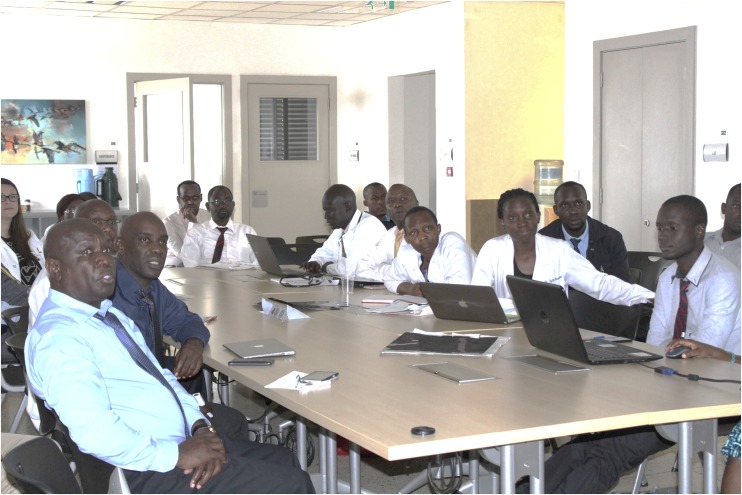Background and objectives
Although 80% of pediatric cancer cases occur in low- and middle-income countries, specialists in the field of pediatric hematology and oncology (PHO) are scarce, which is a major reason for the dismal survival rates of children with cancer and blood disorders in sub-Saharan Africa (SSA) compared with that in high-income countries (HICs). Traditional models of specialty training for SSA physicians (eg, those with a residency or fellowship in HICs) inevitably result in brain drain from SSA. Moreover, the content and context of training in HICs are often irrelevant to SSA settings.
Objectives
Establish the first comprehensive PHO fellowship program for East Africa.
Improve morbidity and mortality for children with blood disorders and cancer in SSA.
Methods
Global Hematology-Oncology Programs of Excellence (Global HOPE) from the Texas Children’s Cancer and Hematology Centers, in partnership with the Uganda Cancer Institute, Makerere University College of Health Sciences, the affiliated Mulago National Referral Hospital, and the Uganda Ministry of Health, have established and initiated the first comprehensive PHO fellowship program in SSA to build a critical mass of PHO specialists through locally based training and accreditation. The program is producing PHO specialists who are prepared to:
Care for children with cancer and/or blood disorders in SSA;
Improve the quality of PHO patient care through research, quality improvement initiatives, and multidisciplinary collaborations; and
Demonstrate interpersonal skills required for effective, respectful relationships with patients, families, and other health professionals.
Capacity building: the East Africa Pediatric Hematology-Oncology Training Program
Program history
The East Africa Pediatric Hematology-Oncology Training Program was launched in August 2016.
Applications were accepted from pediatricians from nations in the East Africa community: Burundi, Kenya, Rwanda, South Sudan, Tanzania, and Uganda.
2015: 4 applications were received, and 4 applicants were selected (Figure 1).
2016: 17 applications were received, and 4 applicants were selected.
2017: 38 applications were received, and 6 applicants were selected.
The training program received full accreditation from the Uganda National Council of Higher Education in 2017.
In the first graduating class, 100% of the fellows passed certifying written and oral examinations.
Figure 1.
The first 4 PHO Fellows in the East Africa Pediatric Hematology-Oncology Training Program.
Program structure
The 2-year program uses a combination of traditional and innovative platforms, including on-site clinical training with PHO specialists, Web-based courses (>40 didactic lectures), and teleconferencing.
The curriculum covers all pediatric malignancies and hematologic disorders with specific emphasis on local epidemiology, resources, and referral patterns.
There were 3 full-time board-certified PHO faculty in Kampala.
Rotating expert faculty from Baylor College of Medicine-Texas Children’s Cancer and Hematology Centers provided didactic and bedside teaching.
Weekly clinical conferences were held between all Global HOPE Centers in Houston, Texas; Uganda; Malawi; and Botswana.
Monthly reflective practice and leadership seminars were conducted.
All fellows have support and mentorship for clinical and/or translational research projects.
Weekly tumor boards were led by the PHO in Uganda, and specialists from pathology, surgery, neurosurgery, radiology, and radiation therapy attended (Figure 2).
Figure 2.
Pediatric oncology weekly tumor board.
Outcomes
The PHO fellowship has had a dramatic impact on patient care.
At 1 month after diagnosis, 30% of patients were alive and under treatment in 2011; 85% of patients were alive and under treatment in 2017.
The PHO fellowship is enhancing multidisciplinary collaboration.
Multiple medical specialties are required for PHO care.
Training was expanded for nursing, pharmacy, and medical officers.
The PHO fellowship is creating a subspecialty workforce in SSA.
Current fellows are from Uganda, Kenya, and Tanzania.
Acknowledgments
Financial support for the East Africa Pediatric Hematology-Oncology Training Program was provided by the African Development Bank, Bristol-Myers Squibb Foundation, ELMA Philanthropies, and Texas Children’s Hospital.
Authorship
Conflict-of-interest disclosure: The authors declare no competing financial interests.
Correspondence: Joseph Lubega, Texas Children’s Cancer and Hematology Centers, Baylor College of Medicine, Houston, TX; e-mail: jxlubega@txch.org.




